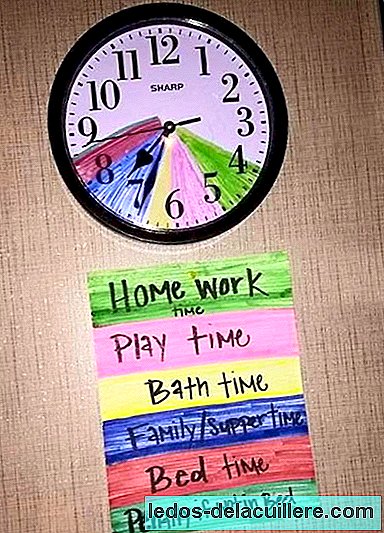
He child sexual abuse It could be defined as all sexual activity with or without violence between an adult and a minor, or between two minors, when one exercises power over the other, whether by force, coercion or persuasion.
It is a crime punishable by law and a situation that can forever mark the personality of the victim, with all the problems that this entails.
It gives the impression that it is an isolated problem that "my children will not happen", there are even people who relate it to a precarious economic level, however it is more common than we think and maybe we should keep it in mind to try to safeguard the childhood and innocence of our children.
From the RANA Foundation (Help Network for Abused Children) they offer information about it and offer us a guide with Seven steps to avoid child sexual abuse.
As more relevant data comment that it is estimated that one in four girls and one in six boys can become a victim of sexual abuse before reaching the age of majority. This means that a large number of children silently endure this type of experience.
Approximately 20% of victims of child sexual abuse are under 8 years of age and most never report abuse.
Seven steps to avoid child sexual abuse:
- Know the facts: parents are responsible for our children and we are the ones who must be on alert to avoid an abuse situation. A third of the victims are abused by family members and this means that the main risk comes from the closest people. Abusers often try to establish a relationship of trust with the parents of the victims and we must bear in mind that anyone can be.
- Reduce the risks: Child abuse occurs when an adult is alone with the child. We must try to meet the person with whom he stays and try to be observed by other people. Internet is a great gateway for abusers, we must monitor the use our children can make of the network.
- Talk about the topic: Children often keep abuse secret. The abusers manipulate and confuse the children so that they believe that it is their fault or that what they are doing is something normal or a game, they can threaten the child or even threaten to harm other people in their family. Talking with children about abuse, adapting our dialogue to their age can cause the silence barrier to be removed.
- Stay alert: we must carefully assess the physical signals such as irritation, inflammation or rash on the genitals, urinary tract infections, etc. and other problems such as abdominal or headache as a result of anxiety.
More commonly, emotional or behavioral problems arise such as withdrawal or depression, excessive self-demand, unexplained anger and rebellion, etc.
Openly sexual and atypical behavior and language for age can also be signs of alarm. - Inform yourself, know how to react: Responding to the truth expressing disbelief or anger and anger can cause the child to try to justify the action, change the version or avoid questions and dialogues that return to the subject.
- Act when you have suspicions: suspicions are scary, but they may be the only chance for a child to be saved (or for several minors, abusers have several victims). If we do not dare to report, we can contact the social services, the child protection services, the health center, etc.
- Get involved: We can fight against abuse, for example, by supporting laws and organizations that fight against sexual abuse of minors.












